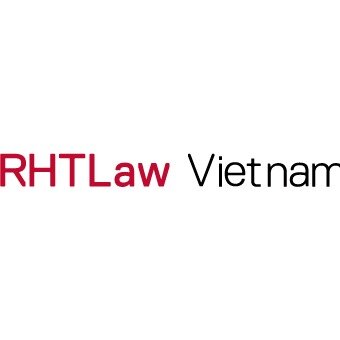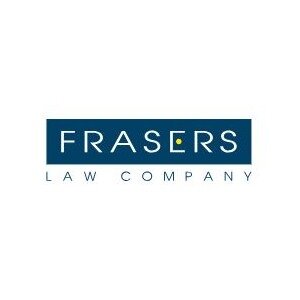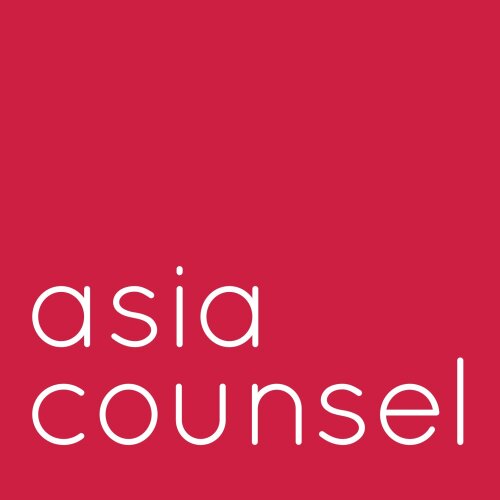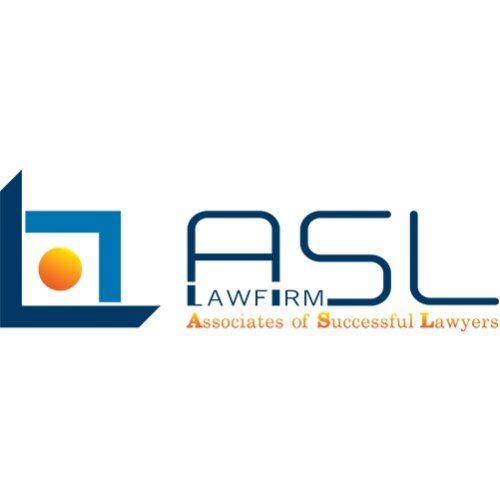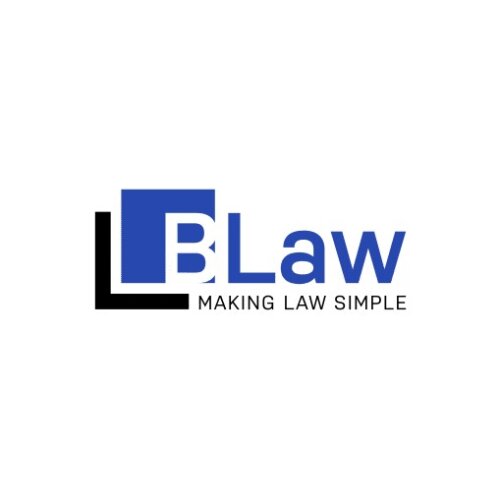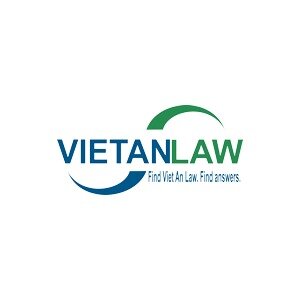Best Energy Regulatory Law Lawyers in Ho Chi Minh City
Share your needs with us, get contacted by law firms.
Free. Takes 2 min.
List of the best lawyers in Ho Chi Minh City, Vietnam
About Energy Regulatory Law in Ho Chi Minh City, Vietnam
Energy Regulatory Law in Ho Chi Minh City is a specialized area of legal practice focused on the supervision, management, and compliance of all activities related to the generation, transmission, distribution, and consumption of energy resources. The Vietnamese energy sector, particularly in major urban centers like Ho Chi Minh City, has rapidly evolved due to urbanization, industrial growth, and increasing foreign investment. Energy Regulatory Law encompasses the legal frameworks governing electricity, renewable energy, oil and gas, as well as the rules for investment, pricing, environmental standards, and contractual obligations within the energy industry. Compliance with national and local regulations, as well as the oversight of regulatory agencies, is essential for individuals and companies active in the energy market.
Why You May Need a Lawyer
People and businesses may require legal help in Energy Regulatory Law for a variety of reasons, including:
- Navigating complex regulatory requirements for obtaining licenses and permits necessary to operate in the energy sector.
- Negotiating and drafting contracts related to energy project development, power purchase agreements, or fuel supply.
- Addressing compliance issues regarding environmental regulations or safety standards.
- Handling disputes between energy suppliers, consumers, or between investors and regulators.
- Advising on mergers, acquisitions, or joint ventures involving energy assets.
- Consulting on renewable energy projects, including incentives and government support programs.
- Dealing with penalties, sanctions, or investigations from regulatory authorities.
- Assisting with tariff reviews, rate setting, or appeals against regulatory decisions.
A lawyer who specializes in Energy Regulatory Law provides essential guidance to ensure compliance, minimize risks, and protect client interests in the dynamic regulatory landscape.
Local Laws Overview
The energy sector in Ho Chi Minh City is governed by a combination of national laws, government decrees, and local guidelines. These laws regulate the production, supply, and use of various forms of energy, including electricity, renewable energy, and petroleum products. Some key aspects relevant to local regulation include:
- Electricity Law and Amendments - This law sets the general framework for the electricity market, from generation and transmission to distribution and retail activities.
- Renewable Energy Policy - The government has introduced mechanisms, such as feed-in tariffs and preferential policies, to encourage the development and use of renewable energy resources.
- Investment Laws - Foreign and local investors must comply with current investment regulations, including requirements for project approval, environmental impact assessments, and minimum capital.
- Tariffs and Price Regulation - The Ministry of Industry and Trade, along with state-owned enterprises, play a key role in setting tariffs and ensuring non-discriminatory access to the energy market.
- Environmental and Safety Standards - Projects must comply with strict technical standards designed to ensure public safety and minimize environmental impact.
- Local Directives - Ho Chi Minh City may have its own regulations or guidelines that complement national laws, especially around urban energy planning and environmental protection.
Frequently Asked Questions
What is Energy Regulatory Law?
Energy Regulatory Law refers to the legal rules and frameworks that oversee how energy resources are created, distributed, used, and regulated. This covers areas such as licensing, tariffs, safety, environmental compliance, and industry competition.
Who regulates the energy sector in Ho Chi Minh City?
The energy sector is primarily regulated by the Ministry of Industry and Trade, the Electricity Regulatory Authority of Vietnam, and local departments such as the Ho Chi Minh City Department of Industry and Trade.
Do I need a license to develop an energy project in Ho Chi Minh City?
Yes, most energy projects, including those involving electricity generation, renewable energy, and petroleum, require multiple licenses and approvals before operation. The requirements depend on the size, scope, and type of project.
Can foreign investors participate in the energy market?
Foreign investors can participate, but must comply with both national investment laws and sector-specific requirements. Joint ventures, public-private partnerships, and wholly foreign-owned projects are possible with the right approvals.
How are electricity prices determined?
Electricity prices are regulated by the government, often through policies that balance investment incentives for producers with affordability for consumers. Prices may also be affected by energy mix, subsidy policies, and international market forces.
What happens if an energy company breaches safety or environmental standards?
Breaching safety or environmental regulations can result in fines, suspension of operations, or even criminal liability. Regulatory bodies conduct inspections and enforce compliance to ensure public and environmental safety.
What is a Power Purchase Agreement?
A Power Purchase Agreement is a legal contract between an energy producer and a purchaser (often the national utility) that outlines the terms of sale, supply, and payment for electricity generated by a specific project.
Are there incentives for developing renewable energy projects?
Yes, there are various mechanisms such as feed-in tariffs, tax exemptions, import duty waivers, and preferential loans to encourage investment in solar, wind, biomass, and other renewable energy projects.
How can a lawyer help with my energy project?
Lawyers can help with due diligence, project structuring, contract negotiation, licensing, regulatory compliance, and dispute resolution throughout the project lifecycle.
Where can I report suspected violations in the energy sector?
Suspected violations can be reported to the Ministry of Industry and Trade, the Electricity Regulatory Authority of Vietnam, or the local Department of Industry and Trade in Ho Chi Minh City.
Additional Resources
Here are some resources, governmental bodies, and organizations that can offer further support regarding Energy Regulatory Law in Ho Chi Minh City:
- Ministry of Industry and Trade (MOIT)
- Electricity Regulatory Authority of Vietnam (ERAV)
- Ho Chi Minh City Department of Industry and Trade
- Vietnam Energy Association
- Legal aid centers specializing in energy and environmental law
- Business associations for foreign and domestic investors in energy
- Environmental Protection Agencies
Next Steps
If you believe you need legal advice or support related to Energy Regulatory Law in Ho Chi Minh City, take the following steps:
- Gather all relevant documentation about your project or situation, including contracts, permits, and previous communications with authorities.
- Identify the specific issue or question you need assistance with, such as licensing, compliance, contract negotiation, or dispute resolution.
- Research and select an experienced lawyer or law firm with expertise in Energy Regulatory Law in Vietnam, paying special attention to client reviews and relevant qualifications.
- Schedule a consultation to outline your needs, discuss possible solutions, and understand the potential timeline and costs involved.
- Maintain clear communication with your legal advisor throughout the process and keep records of all legal advice and actions taken.
Legal guidance can prevent costly mistakes, facilitate project success, and ensure your interests are protected in the developing and highly regulated energy market of Ho Chi Minh City.
Lawzana helps you find the best lawyers and law firms in Ho Chi Minh City through a curated and pre-screened list of qualified legal professionals. Our platform offers rankings and detailed profiles of attorneys and law firms, allowing you to compare based on practice areas, including Energy Regulatory Law, experience, and client feedback.
Each profile includes a description of the firm's areas of practice, client reviews, team members and partners, year of establishment, spoken languages, office locations, contact information, social media presence, and any published articles or resources. Most firms on our platform speak English and are experienced in both local and international legal matters.
Get a quote from top-rated law firms in Ho Chi Minh City, Vietnam — quickly, securely, and without unnecessary hassle.
Disclaimer:
The information provided on this page is for general informational purposes only and does not constitute legal advice. While we strive to ensure the accuracy and relevance of the content, legal information may change over time, and interpretations of the law can vary. You should always consult with a qualified legal professional for advice specific to your situation.
We disclaim all liability for actions taken or not taken based on the content of this page. If you believe any information is incorrect or outdated, please contact us, and we will review and update it where appropriate.






